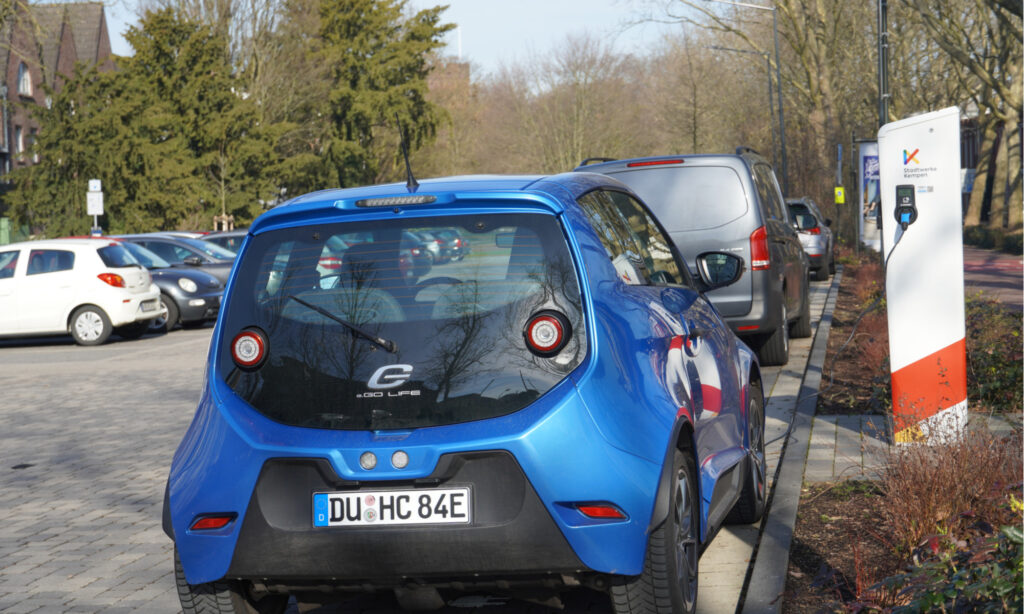Bulgaria has joined Germany, Italy and Poland in opposing the EU’s proposal for a de facto ban on petrol and diesel cars from 2035, citing the poverty of its citizens as the main reason for his rejection.
Unlike other opponents of the burning ban, Bulgaria cites poverty as the reason for its veto, according to the first-ever detailed explanation the government sent in response to questions from EURACTIV Bulgaria.
“The most sensitive issues for the country with regard to decarbonization in the transport sector remain the relatively high price of electric vehicles in the context of extremely low incomes of the country’s population, as well as the lack of an infrastructure developed charging station,” the Bulgarian government told EURACTIV.
There are no car assembly plants in Bulgaria, but the automotive sector is relatively well developed with the production of automotive components, cables and software, and the total industry turnover s amounts to 6.5 billion euros, or 8% of the country’s GDP.
However, the country’s capacity to accommodate electric cars is very limited. A project to build an electric car factory in northern Bulgaria, with the support of a German investor, is underway, but it is still unclear when the factory will start production.
For most Bulgarians, buying a new car is an impossible project.
Bulgarians use their car for an average of 19 years – the longest in the EU. They also buy seven times as many old cars as new cars, most of which are imported from Germany and Italy.
“Taking into account the national characteristics of each EU Member State, including significant differences in terms of the purchasing power of the population and the accessibility of new cars, remains a priority for our country. Unfortunately, we do not consider that the proposed compromise text reflects these considerations to a sufficient degree,” says the government.
Bulgaria’s concerns are also linked to the likely increase in imports of used cars from wealthier member states, which will be due to the replacement of petroleum engines by electric vehicles. Used cars should be sold even cheaper to Bulgaria.
“As a result, the general state of the vehicle fleet in countries like Bulgaria, instead of improving, could suffer the opposite effect. The same goes for the purity of the atmospheric air” , adds the government.
“Environmental protection should not lead to a potential reduction in vehicle safety,” said the government, which is also concerned about the safety of older cars.
Another important factor for Bulgaria is technological neutrality, a key point for Germany.
“We recognize the important role of alternative fuels, including biofuels (including biomethane), in limiting road transport emissions. In this regard, Bulgaria is in favor of taking into account the role of vehicles powered by similar fuels, including hybrids,” says the government of Sofia.
According to Bulgaria, the recognition of the use of renewable fuels will give manufacturers the flexibility to move towards electrification without taking commercial risks, avoid situations of shortage of affordable vehicles and allow manufacturers of parts and components to s adapt to new technologies.
Bulgaria insists on the establishment of effective incentives for the introduction of zero or low-emission vehicles, as well as measures to bridge price differences with conventional cars. The government says consumers are wary of certain types of low-carbon technologies and is pushing for incentives to be put in place to encourage the purchase of electric cars.
“In plans to change EU legislation in the relevant area, overambitious targets are set, which could have a negative impact, especially in the current situation of economic and energy crisis, production problems and supplies, as well as the repercussions of the war in Ukraine,” the government added.
Source: Euractiv


